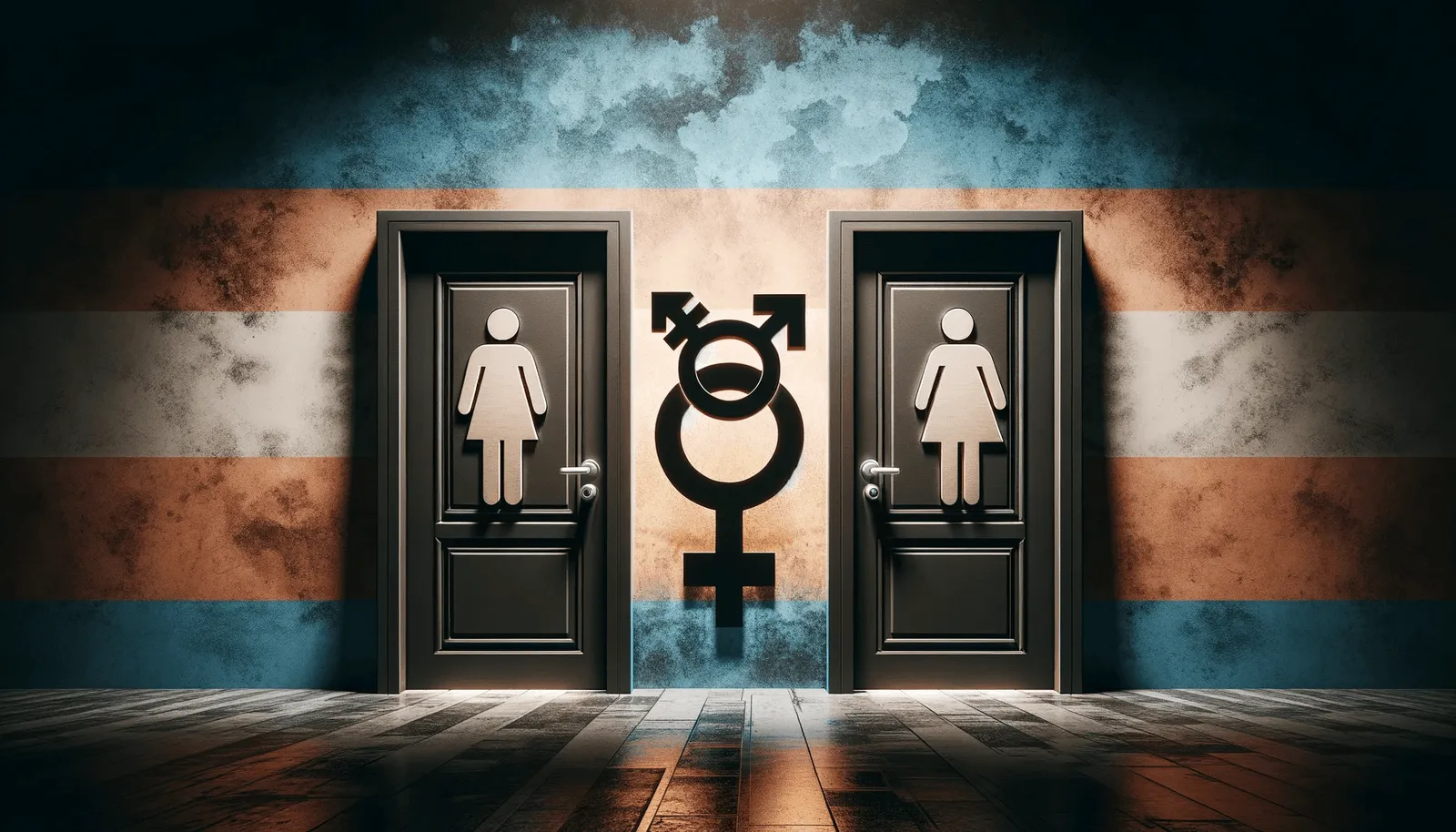Donations
Every donation, big or small, makes a significant impact.

Latest Podcasts
Stone Cold Killers
Hidden Inflation Crisis
Trump's America First
How Transgender Bathroom Policies Trample on Privacy Rights
Imagine you're in a public restroom, where you expect privacy and safety. Suddenly, that privacy is compromised. Why? Because political correctness dictates that anyone, regardless of their biological sex, can enter. This issue isn't about transphobia; it's about the basic right to privacy. Women, in particular, find themselves at the losing end of this deal, their safety concerns drowned out by the loud voices of the 'progressive' agenda.
Safety Concerns – Not Just a Conservative Conspiracy
The argument that transgender bathroom policies pose a safety risk is not just some conservative scare tactic; it's a legitimate concern rooted in reality. Let's face it – when we allow anyone, regardless of their biological sex, to enter a restroom designated for the opposite sex, we're not just blurring societal norms; we're potentially compromising safety.
First, consider the perspective of women and young girls. For them, a restroom is more than a place to relieve themselves. It's a private space, a sanctuary, where they can feel secure from the male gaze and potential male aggression. Introducing biological males into this equation isn't just uncomfortable; it's downright terrifying for many. It's not about demonizing transgender individuals but acknowledging that there are bad actors who could misuse these policies. We're talking about the possibility of sexual predators masquerading as transgender to gain access to victims. While not every man is a threat, and not every transgender individual is a predator, the lack of a clear boundary opens a window of opportunity for those with malicious intent.
Furthermore, the argument extends beyond the immediate threat of physical harm. Psychological discomfort and anxiety should not be underestimated. Women and girls forced to share a private space with biological males may experience increased stress and anxiety, impacting their mental well-being. This is particularly concerning in settings like schools, where young girls should feel safe and protected. When these girls express discomfort, they're often dismissed or labeled as intolerant, further marginalizing their concerns. In this way, transgender bathroom policies not only risk their physical safety but also their psychological health.
The Social Implications: A Pandora's Box
The debate over transgender bathroom policies isn't just a minor scuffle over restroom signage; it's a battle over the very fabric of societal norms and safety. These policies, seemingly progressive and inclusive on the surface, are a Pandora's box of far-reaching social implications.
First and foremost, it's about setting a precedent that could lead us down a slippery slope. When redefining public spaces based on subjective feelings rather than objective realities, we open the door to many complex issues. Today, it's about bathrooms. But what about tomorrow? Where do we draw the line if we base access to intimate spaces solely on self-identification? This isn't fearmongering; it's a legitimate question about the future of our societal structures. Will locker rooms, dormitories, and sports teams follow suit? The implications could stretch into every aspect of public life, disrupting norms that have provided structure and safety for decades.
Moreover, these policies can create a culture where the majority is forced to conform to the preferences of a few. Inclusivity is essential, but not at the expense of the comfort and safety of the majority. There's a delicate balance between respecting individual rights and preserving collective security; these policies tip the scales alarmingly. In trying to be inclusive, we risk alienating large groups of people who are not comfortable with these changes but are afraid to speak out for fear of being labeled intolerant or backward.
The War Against Biological Reality
Biological sex, defined by distinct physical characteristics, has long been the foundation upon which many societal norms and laws are built. These biological distinctions are crucial in maintaining certain societal structures and safety protocols, especially in private and vulnerable spaces like restrooms and changing rooms. By allowing bathroom access based solely on self-identified gender, we risk eroding these vital biological distinctions.
The implications of ignoring biology are vast and complex. Firstly, it undermines the importance of physical reality in favor of subjective self-identification. This shift can have serious ramifications. For instance, in competitive sports, disregarding biological sex in favor of gender identity can create unfair advantages and safety concerns. In healthcare, ignoring biological sex can lead to misdiagnoses and inappropriate treatments, as many health issues are sex-specific.
Furthermore, this shift towards prioritizing subjective identity over objective reality can undermine scientific understanding and education. When biological facts are viewed as interchangeable or secondary to how one feels about one's gender, it sets a concerning precedent. It affects how science is taught in schools and how research is conducted and interpreted. In the long run, this could lead to a society where empirical evidence takes a backseat to personal beliefs.
Moreover, the war against biological reality has significant legal implications. Laws and policies based on subjective self-identification rather than objective criteria can be more clearly inconsistent, and this can lead to legal challenges and conflicts, as seen in cases involving bathroom access, prison placements, and athletic participation. The legal system, which relies on clear, objective criteria, must adapt to this new paradigm where subjective self-identification holds sway.
In addition, there's a broader cultural impact. As society shifts away from acknowledging biological realities, it could lead to a diminishing of the shared understanding that is essential for social cohesion. This shift could create divisions and conflicts as different groups vie for recognition and rights based on their self-identified identities rather than shared, objective realities.
The Conservative Stance: Protecting Our Rights
As conservatives, we must stand up for the rights and safety of individuals. This isn't about hate or exclusion; it's about protecting the fundamental right to privacy and safety in vulnerable spaces like bathrooms. It's about speaking the harsh truth, even if it's not politically correct.
It's high time we stand up against this insanity. It's not just about bathrooms; it's about preserving our rights and safety. We must push back against policies prioritizing feelings over facts and political correctness over privacy.






0 Comments
Login or Subscribe to Join the Conversation
SubscribeLog in